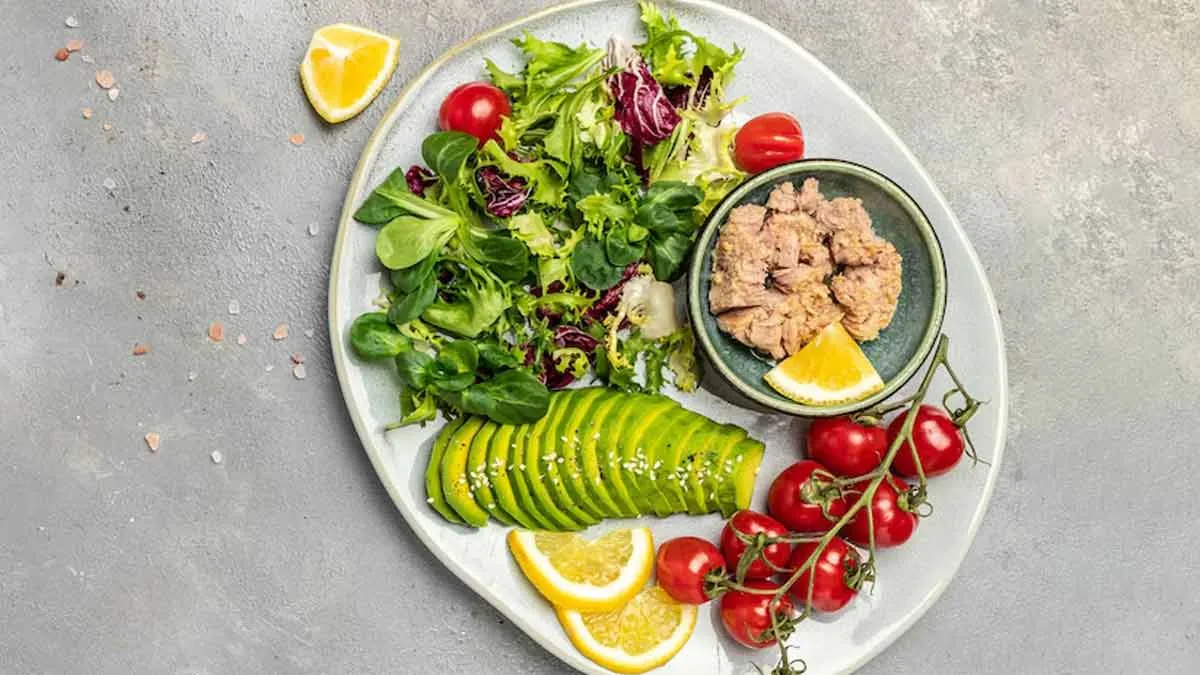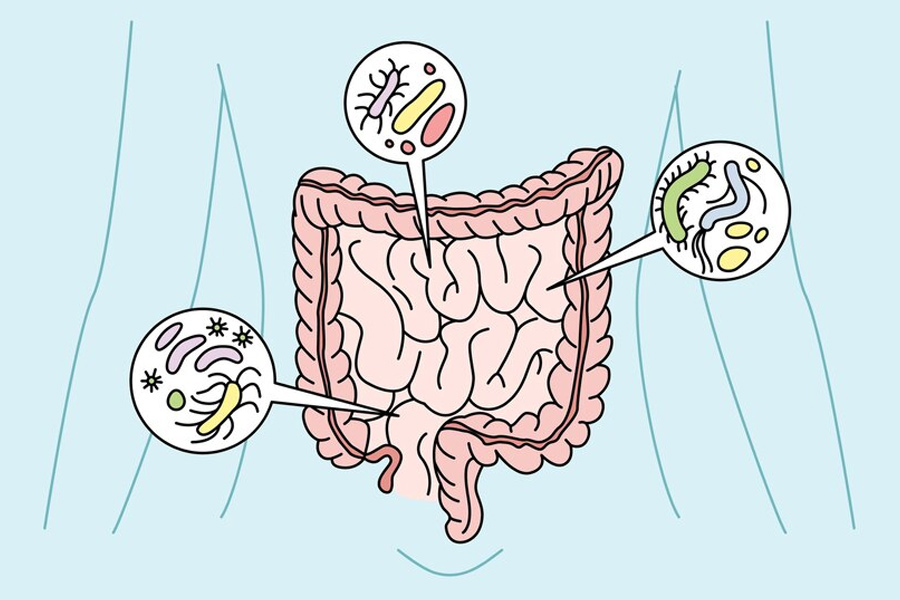
Ever wondered if the food on your plate could influence your brain power? Well, science says it can! A recent study has revealed that following a Mediterranean diet, rich in fresh fruits, vegetables, nuts, fish, and olive oil, can do more than just keep your heart healthy. It can actually reshape your gut bacteria in ways that boost memory and cognitive function. This exciting discovery sheds light on the powerful connection between our diet, gut health, and brain performance, offering a delicious way to stay sharp and focused.
Table of Content:-
The Mediterranean diet is characterised by a high intake of fresh fruits, vegetables, nuts, seeds, fish, whole grains, and olive oil, alongside moderate consumption of dairy and limited red meat. To understand more about this, OnlyMyHealth team interacted with Dr Amol Dahale, Consultant Gastroenterologist, DPU Superspeciality Hospital.
Dr Dahade explains, “The Mediterranean diet consists of fresh fruits, vegetables, nuts, and fish. This kind of diet, similar to what some call the ketogenic diet, is high in antioxidants and proteins but lower in carbohydrates. It’s long observed that such a diet contributes to better overall health.”
The Role of the Gut Microbiome

One of the key areas of focus in this study is the gut microbiome, a diverse community of microorganisms residing in the digestive system. A recent research conducted by Tulane University states that composition of gut bacteria has a profound impact on various aspects of human health, including immunity, metabolism, and mental well-being.
Dr Dahale emphasises, “The gut microbiome is a recently researched area by the scientific community, showing a high impact on health. Interestingly, one’s diet often changes the gut microbiome composition. When good bacteria dominate and bad bacteria are fewer, it often leads to overall better health. This gut microbiome has an interaction and cross-talk with the brain.”
This bidirectional communication between the gut and the brain, often referred to as the gut-brain axis, plays a crucial role in mental and neurological health. Alterations in gut microbiota composition can influence brain function, making dietary interventions an exciting area of research for cognitive enhancement.
Also read: Healthy 2025: Top 7 Healthy Diets You Must Try This Year
The Study and Its Findings

In this study, researchers investigated the effects of the Mediterranean diet on brain function using animal models and human trials. Their findings revealed that the diet positively influenced cognitive abilities and brain function, potentially mediated by changes in gut microbiota.
“Researchers found in a study on rats that a Mediterranean diet improves cognition and brain function,” shares Dr Dahale. “Trials in humans have yielded similar interesting results. Their research used a Mediterranean diet with extra virgin olive oil and nuts combined with a low-fat diet, which improved cognitive brain function. This effect is presumed to be modulated by the gut microbiome.”
Why the Mediterranean Diet Stands Out
The Mediterranean diet is rich in antioxidants, healthy fats, and essential nutrients that combat inflammation and oxidative stress, two significant contributors to cognitive decline. The inclusion of extra virgin olive oil, a staple in this diet, provides monounsaturated fats and polyphenols, which have been linked to better brain health.
Nuts, another key component, are a source of healthy fats, vitamin E, and other nutrients that protect the brain against ageing and degeneration. Additionally, the diet’s emphasis on fibre-rich foods supports the growth of beneficial gut bacteria, further enhancing its positive effects on the gut-brain axis.

Implications for Cognitive Health
The findings of this study have broad implications, especially as the global population ages and the prevalence of neurodegenerative conditions like Alzheimer’s disease increases. By adopting a Mediterranean diet, individuals may not only improve their physical health but also protect their cognitive functions as they age.
“The interaction between the gut microbiome and the brain makes the Mediterranean diet’s effects on brain health particularly fascinating,” remarks Dr Dahale. “This research highlights how small changes in our eating habits can bring significant benefits to our mental well-being.”
Also read: Here’s How a Mediterranean Diet Can Help Fibromyalgia Patients
Practical Tips for Incorporating the Mediterranean Diet
Adopting a Mediterranean diet is simple and delicious. Here are some practical tips:
Choose Olive Oil: Use extra virgin olive oil as your primary cooking fat.
Eat More Vegetables: Include a variety of colourful vegetables in your meals.
Snack on Nuts: Replace processed snacks with a handful of almonds or walnuts.
Opt for Whole Grains: Choose whole-grain bread, pasta, and rice.
Include Fish: Incorporate fatty fish like salmon, mackerel, or sardines into your diet twice a week.
Limit Red Meat: Reduce red meat consumption, opting for lean proteins like chicken or legumes.
Conclusion
The Mediterranean diet is more than just a meal plan; it’s a lifestyle that fosters health and longevity. This latest study linking the diet to enhanced cognition and memory underscores its importance in supporting both physical and mental health. As Dr Dahale concludes, “It’s interesting to see the effects of the Mediterranean diet on brain health. This research reinforces the idea that what we eat has far-reaching effects on our overall well-being.”
Also watch this video
How we keep this article up to date:
We work with experts and keep a close eye on the latest in health and wellness. Whenever there is a new research or helpful information, we update our articles with accurate and useful advice.
Current Version